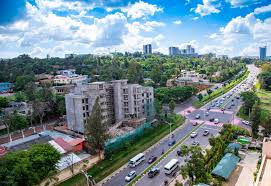Kigali: Exploring Rwanda’s Thriving Capital

Introduction
Kigali, the capital city of Rwanda, is an emerging urban centre in East Africa, known for its cleanliness, safety, and rapid development. As the country continues to recover and grow after the 1994 genocide, Kigali stands as a symbol of resilience and progress, making it a significant point of interest for both tourists and investors.
A Growing Economy
Kigali’s economy has been on a continuous upward trajectory, driven by various sectors including tourism, information technology, and services. According to the National Institute of Statistics of Rwanda, the city contributes around 60% of the country’s GDP, highlighting its pivotal role in Rwanda’s economic landscape. With recent initiatives aimed at becoming a high-tech hub, Kigali is attracting businesses and startups, particularly in tech and innovation.
Cultural and Historical Significance
Kigali is rich in culture and history, with several landmarks that reflect its past and present. The Kigali Genocide Memorial serves as a poignant reminder of the nation’s tragic history, providing visitors with educational insights into the events of 1994. In contrast, the vibrant art scene and bustling markets such as Kimironko Market showcase the city’s contemporary culture and the warmth of its people.
Infrastructure and Urban Development
The government of Rwanda has heavily invested in infrastructure development, improving roads, public transport, and housing. The city’s clean and organized layout is the result of strict regulations and community involvement in maintaining public spaces. The introduction of electric buses and the promotion of eco-friendly initiatives highlight Kigali’s commitment to sustainable urban development.
Conclusion
Kigali continues to evolve, with forecasts suggesting further growth in tourism and investment sectors. The city is positioning itself as a key player in the African continent’s development narrative. For readers and potential visitors, Kigali offers a unique blend of history, culture, and modernity, making it an essential destination in East Africa.
